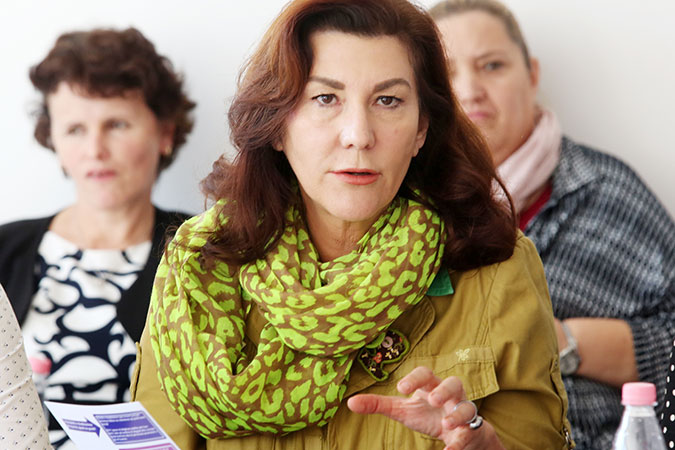In the words of Fabiola Laco Egro: “Women need to take part and to voice their priorities in the budgeting process”
Date:

“Our ambitious challenge was to increase the participation of women in the participatory budgeting process and the quality of discussion. I decided to be fully involved in open discussions as a woman to women in a simple and direct three-step process entitled, “Take part, speak up, decide!” and invited municipal representatives to partake. The approach was simple: working with the municipal budget, the same as with the family budget and everyone was deeply focused on solving problems and finding the best match. It was then that everything was flowing in the right direction.
At the local governance level, the participatory budgeting has become a key procedure in the municipal budget planning process. Due to social, economic disparities and gender inequalities, mainly in rural and suburban areas, women’s participation in budget and priority planning remains low. The most vulnerable and excluded women are completely missed out, also due to the lack of inclusive culture and gender consideration in the local governance process. Being mothers and in charge of caring for all family members and chores, women’s voice in prioritizing the municipal budget in any area of investments and services is vital.
“Today for the Future” in partnership with UN Women empowered and activated 281 women in 10 administrative units of Tirana to take part and voice their concerns in municipal budget planning. Supported by the network of local organizations and women activists, they learned about budget planning in a simple and friendly way and how to translate their needs into joint community priorities.
They also engaged other women to be active, which boosted to 983 the number of women and girls who, for the first time, could participate and speak up about their priorities actively. This was the first-time women represented 49% of participants in the ten public hearings organized in their administrative units during 2018. They represented all ages, different economic and educational backgrounds, from rural and urban areas, including marginalized, migratory, ethnic groups and women with special needs. More than 40 women were speakers from women’s groups.
Read more from UN Women's website for Albania.